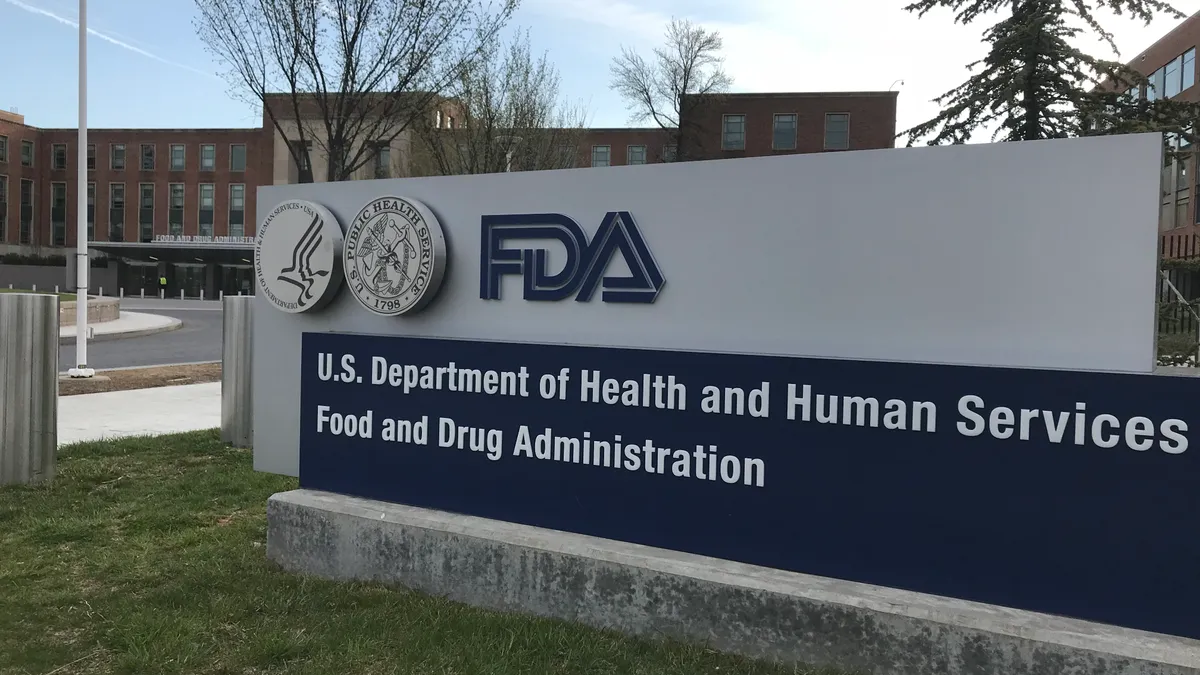Dive Brief:
- FDA said new research linking silicone breast implants to a higher risk of connective tissue diseases such as rheumatoid arthritis and scleroderma has "significant shortcomings," and the agency defended its record of assessing, monitoring and communicating to the public about risks associated with the devices.
- In a statement in response to the MD Anderson study, FDA took issue with what it called "inconsistencies in the data and potential sources of bias." The agency said it continues to believe the body of scientific evidence does not conclusively demonstrate an association between breast implants and connective tissue diseases.
- FDA said it will hold a public meeting in 2019 of the Medical Devices Advisory Committee's General and Plastic Surgery Devices Panel to promote awareness and public dialogue on the safety and effectiveness of breast implants.
Dive Insight:
The study from MD Anderson Cancer Center rekindles a decades-long debate over the safety of silicone gel-filled breast implants that spawned thousands of lawsuits against manufacturers, forced maker Dow Corning into bankruptcy and resulted in FDA placing a voluntary moratorium on sales of the devices between 1992 and 2006.
FDA in November 2006 approved silicone gel-filled implants from Allergan and Mentor, ending the moratorium. In 2011, the agency issued a report based on results of post-approval studies of those products that concluded the devices have a "reasonable assurance of safety and effectiveness when used as labeled."
That same year, FDA also warned that it had identified a possible link between breast implants and development of a form of lymphoma, a cancer of the immune system. FDA said it believes the condition, called breast implant-associated anaplastic large cell lymphoma, or BIA-ALCL, to be very rare.
The new MD Anderson analysis, published in the Annals of Surgery, examined FDA’s data from the manufacturers' post-approval studies for more than 100,000 breast implant patients. The MD Anderson researchers found an association with some autoimmune diseases and cancers, including scleroderma and melanoma, but said a direct link or causative effect between the implants and the conditions was not established.
According to the researchers, a group of patients with one brand of silicone implants reported a two to eight times higher frequency of Sjogren syndrome, rheumatoid arthritis, scleroderma and melanoma compared to the general population. Patients with the other brand of silicone implants reported scleroderma, Sjogren syndrome and dermatomyositis more than twice as often as the general public. One case of BIA-ALCL was reported.
"It's vital that women with implants be aware of the potential risks, so they can identify symptoms early and consult with their doctors," Mark Clemens, an associate professor for plastic surgery and the study’s lead investigator said in a press release. "Fortunately, many of the diseases and conditions that have an association with implants are quite rare, so awareness is that much more important."
FDA said it "respectfully" disagreed with the study's conclusions. "We note our concerns with significant shortcomings with the study’s methodology and how the data is presented and concluded, including inconsistencies in the data and potential sources of bias. Because of these concerns, we urge the public and healthcare community to view this external assessment’s conclusions with caution," FDA said.
In the editorial response in the Annals of Surgery, Binita Ashar, director of the Division of Surgical Devices in the FDA's Center for Devices and Radiological Health, said sufficient evidence is lacking to show an association between breast implants and rheumatologic or connective tissue diseases.
FDA noted that silicone breast implants are not intended to last a lifetime. According to the American Society of Plastic Surgeons (ASPS), the implants must be exchanged or removed roughly every 10 to 15 years to prevent silicone leakage from the potential breakdown of the outer shell.
In the two years following its 2011 report on the post-approval studies, FDA approved new versions of silicone implants from Sientra, Allergan and Mentor.
FDA, in its statement, said it has coordinated with ASPS and the Plastic Surgeons Foundation to develop a patient registry to collect data on confirmed diagnoses of BIA-ALCL. It is also working with multiple stakeholders to develop a National Breast Implant Registry to evaluate data from providers on the safety and performance of breast implants in their patients.
FDA said it has heard from patients concerned their implants may be connected to health conditions including chronic fatigue, cognitive issues and muscle pain. The agency said it has no evidence associating the implants with those conditions, but the registry may help identify risk factors for complications.
Breast implants are used in nearly 100,000 reconstructions for breast cancer and 300,000 augmentations a year in the United States, MD Anderson said, citing ASPS data.











